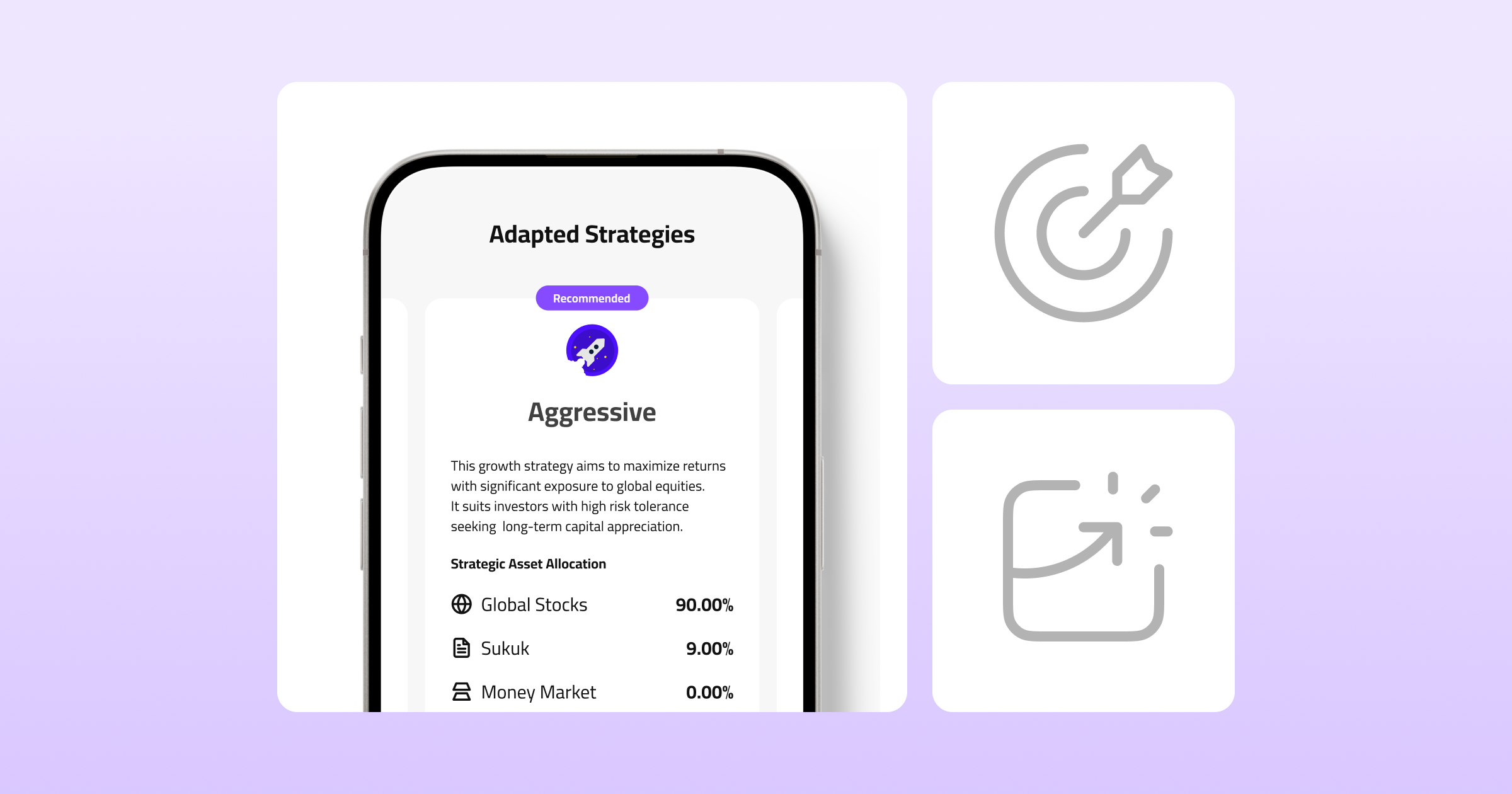Understanding Mutual Funds and How They Work in the Saudi Market
Mutual funds function as financial instruments that enable investors to diversify their portfolios. Both individual investors and institutional clients use these financial instruments to gain professional management of market access. The investment vehicle appeals to those who want market exposure without needing to monitor market movements or analyze securities.
Mutual funds are the best investment vehicle for people who do not have enough time or experience to manage their portfolios. They provide investors with the expertise of professional managers who analyze markets and make strategic investment choices.
Saudi Arabia’s financial market growth depends on mutual funds to distribute capital between different financial instruments. The spread of investments across multiple asset classes through diversification helps minimize risks that come from putting all funds into one asset class.
This article defines mutual funds, explains Saudi Arabian fund types, operational mechanics, and benefits, and provides guidance on selecting funds that match financial goals and risk tolerance.
What Are Mutual Funds?
Mutual funds pool money from multiple investors into one portfolio managed by a professional fund manager. Depending on the fund’s structure and investment strategy, the assets may include stocks, bonds, sukuk, or money market instruments. Each investor receives units in the fund that reflect their share of the total assets.
These funds provide a simplified way to access financial markets without requiring full expertise in financial analysis or individual stock selection.
Types of Mutual Funds in the Saudi Market
Saudi Arabia offers a range of mutual fund types to suit various investor goals. The primary types include:
- Equity Funds
These invest mainly in shares of publicly listed companies. They aim for long-term capital growth but can be subject to significant market fluctuations.
- Fixed-Income Funds
These invest in fixed-income instruments like bonds or sukuk. They are typically less volatile than mutual funds and aim to provide regular income.
- Money Market Funds
Focusing on short-term, high-liquidity instruments such as treasury bills, these funds are considered relatively conservative. They are often used for capital preservation or as a short-term holding option.
- Real Estate Investment Traded Funds (REITs)
These funds are invested in income-generating real estate and traded on the stock exchange, such as shares. They offer individuals access to real estate exposure without owning property directly.
- Balanced Funds
These combine equities and fixed-income instruments in one portfolio. They aim to balance growth potential with stable returns.
- Exchange-Traded Funds (ETFs)
Also known as index funds, ETFs track a specific index like TASI or MSCI. They are designed for investors looking to replicate overall market performance without picking individual securities.
H3: How Mutual Funds Work
Mutual funds operate on the principle of pooling capital. The process involves several steps:
Capital Collection: Investors purchase units in the fund. The unit price reflects the fund’s net asset value (NAV) at the end of each business day.
Investment Execution: A professional manager runs the fund, making buy and sell decisions based on its investment policy and strategy.
Distribution of Returns: If the fund earns profits through dividends or capital gains, those may be distributed to investors or reinvested, depending on the fund’s policy.
Periodic Valuation: The unit price is evaluated daily or weekly, allowing investors to track the value of their holdings.
H3: Benefits of Investing in Mutual Funds
Mutual funds offer several advantages that may appeal to investors:
- Diversification
Funds spread investments across multiple assets, helping reduce the impact of any asset’s poor performance.
- Professional Management
Investors benefit from fund managers’ expertise in market analysis and investment strategy.
- Ease and Flexibility
Investors can access markets without managing investments personally. Units can typically be bought or sold with relative ease.
- Transparency
Funds publish regular performance reports, asset breakdowns, and associated risks.
- Relatively Low Costs
Some funds, especially index funds, have lower management fees compared to actively managed investments.
How to Choose the Right Fund
The selection of the appropriate mutual fund is based on a clear financial objective, investment horizon, and minimum risk. Choosing randomly or merely basing it on historical performance may not be beneficial to investors. A thoughtful evaluation of several factors is essential and should include the following steps:
- Define Your Investment Goal
Different funds serve different purposes. Some focus on capital growth, others on generating periodic income, or preserving capital with minimal risk.
For example, someone saving for a home in five years may choose a different fund than someone preparing for retirement in two decades. Clear goals help narrow suitable fund options.
- Assess Your Risk Tolerance
Each investor has a unique risk capacity. Equity funds can be more volatile but may yield higher long-term returns. Fixed-income or money market funds offer more stability but generally lower returns.
Understanding whether you’re comfortable with short-term fluctuations is key to selecting the right strategy.
- Understand the Fund’s Asset Composition
Review the fund’s factsheet and periodic reports. Check whether it invests in local or international stocks, sukuk, real estate, or cash equivalents. Look at the asset mix, industry or geographic concentration, and how that might affect performance and risk.
- Review Historical Performance
The past performance of a fund does not ensure future success, but it demonstrates how the fund handled market changes. Review the fund’s performance over 3 to 5 years and evaluate it against peer funds and benchmark indices. Your main focus should be on the fund’s performance during economic downturns.
- Examine Fees and Costs
Fees directly affect net returns. Common costs include:
Management Fees: Charged annually as a percentage of assets.
Performance Fees: May apply if returns exceed a set benchmark.
Subscription or Redemption Fees: Sometimes charged on entry or exit.
Operating Costs: Custody, legal, and trading expenses.
Investors should estimate the probable returns of various funds to determine their levels. They should also fully disclose the fund’s outperformance because it may be remunerated with increased fees.
Mutual funds allow Saudi Arabian investors to access the market based on regulation by professionals and develop a diversified portfolio without requiring constant surveillance. Nevertheless, it is important to have a good evaluation.
Every investor should evaluate his or her level of risk by reading the fund documentation and then tracking the investment. Investors should ensure that their financial objectives are aligned with the fund that they have chosen by reviewing them periodically.
Disclaimer: This content is for educational and informational purposes only. It is not investment advice or a recommendation. Past performance is not a guarantee of future outcomes. Please consult your financial advisor before making any investment decision.
Derayah Financial is licensed by the Capital Market Authority (License No. 27-08109, dated 19/06/1429H | June 23, 2008).
H2: Frequently Asked Questions (FAQs)
- What are mutual funds, and how do they operate?
Mutual fund investors combine their money through professional management to create the investment portfolio. The fund implements its investment strategy by allocating its resources across stocks bonds and money market instruments. The fund’s overall performance determines the value of its units.
- Can expats invest in mutual funds in Saudi Arabia?
Expats who reside in Saudi Arabia can invest in mutual funds through licensed banks or brokers. The residency must be valid to open an investment account with the required documentation. The eligibility requirements differ between funds, so it is important to review terms and consult a financial advisor.


